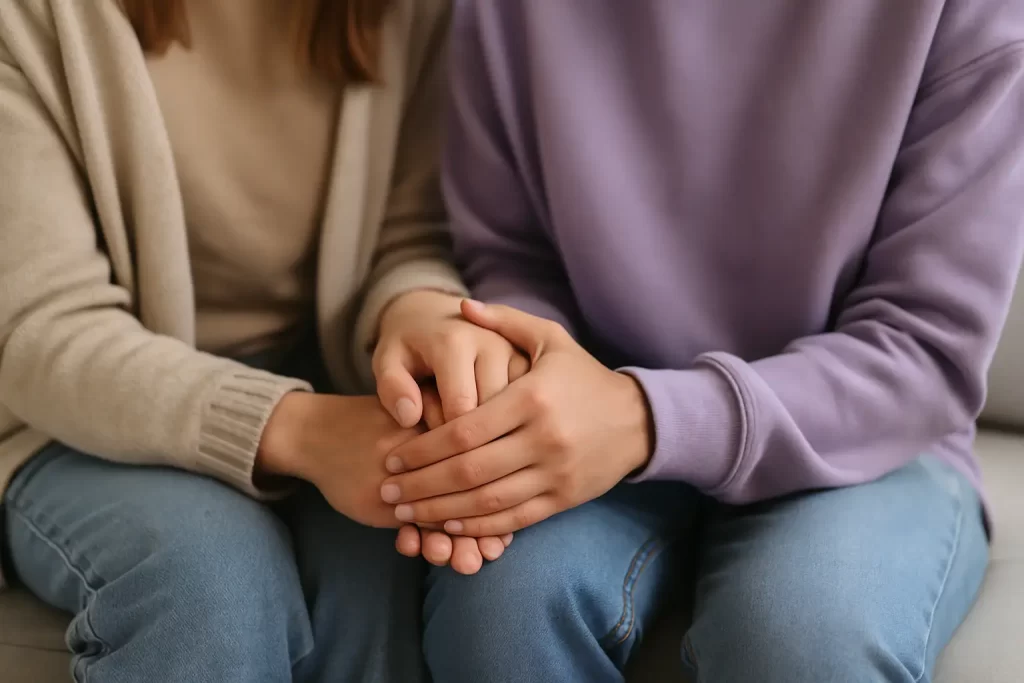Suppose you have a very close friend who recently was at a bar meeting up with friends. After having a few drinks, she ordered an Uber and went home solo. But on the way home, something terrible happened to her. After contacting Uber about the non-consensual traumatic experience, she did some research and read about thousands of Uber sexual assault lawsuits.
Your friend bravely decides to take legal action. Despite the courage it takes to come forward and share the story, the reality is that the legal process can also be scary for survivors. Courtrooms, lawyers, paperwork, depositions, subpoenas, cross-examinations, etc. It can feel like being dropped into a maze where every turn brings another form to sign, another stranger to question you, and no clear way out.
Survivors don’t just need an experienced lawyer. They also need someone in their corner. That’s where you come in. And no, you don’t need to cram a few years’-worth of law school to help your survivor friend. What matters most is showing up.
Understand Why the Legal Process Can Feel Overwhelming
Legal cases move slowly. Months, sometimes years. Survivors may have to tell their story more than once. That means reliving painful memories. The words and rules used in court can also be confusing. “Statute of limitations”? (That just means the deadline for filing a case.) “Deposition”? (That’s answering questions from lawyers before trial.) When survivors feel lost, your support can steady them.
Offer Emotional Support Without Pressure
Sometimes survivors want to fight. Other times they want to give up. Both are normal. Don’t push. Don’t say, “You have to be strong.” Instead say, “I’m here. No matter what you decide.” That simple promise means everything.
Provide Practical Help During the Legal Journey
Court cases bring stress on top of everyday life. You can help in small ways. Drive them to an attorney meeting. Bring over dinner the night before a hearing. Keep a folder of important papers. These little things add up. They let survivors breathe.
Respect Privacy and Boundaries
This part is huge. Survivors may not want others to know the details. Respect that. Don’t share their story, even with good intentions. If they want you at court, be there. If they don’t, step back. It’s about giving them control.
Encourage Professional Legal Guidance
Not all lawyers are the same. Survivors need attorneys who focus on sexual abuse cases. These attorneys understand trauma. They know how to fight powerful institutions. SurvivorsRights.com can help connect survivors with attorneys who do just that. You can help by researching options and going with them to the first meeting. Sometimes just sitting next to them makes all the difference.
Support Through Court Proceedings
Courts are intimidating. Just walking in can raise anxiety. Your job? Be the calm presence. Sit in the gallery. Hold their hand before they walk in. Bring water. Simple things remind survivors they aren’t alone. Some may want you nearby the whole time. Others may not. Follow their lead.
Be There After the Case Ends
When the case is over, whether it’s a settlement or jury trial, the emotional rollercoaster doesn’t just stop when the paperwork is done. (Most institutional sexual abuse cases end in settlements, not trials.) Survivors may feel relief. Or disappointment. Or anger. Sometimes all three at once. Keep checking in. Celebrate small victories. Encourage therapy if they’re open to it. Let them know the fight in court was only part of the journey, but you’ll be there for the rest.
Supporting a survivor through the legal process doesn’t mean that you need to be a font of legal knowledge; you don’t have to be an ersatz attorney. Instead, where you’ll be needed most is just being there. Listen to them, show up for them (if requested), ensure they are taking care of themselves (getting proper rest and nutrition and self-care). Survivors need and deserve allies who help carry the weight. If you’re steady and patient, you can make a bumpy road a little smoother.
